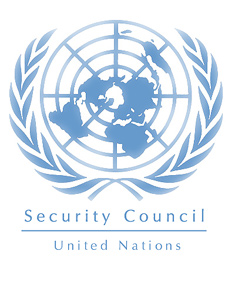 Michael Hughes
Michael Hughes
AOPNEWS
March 17, 2023
The UN Security Council unanimously called for an independent assessment and recommendations for dealing with the Taliban’s failings, although key members differed on the approach – with Western powers and key allies stressing human rights violations while Russia and China called for focusing on humanitarian needs and the negative impact of “unilateral sanctions.”
The resolution states that the request emanates from “concern at the lack of progress on the Security Council’s expectations of the Taliban.” The 15-member council requested that UN Secretary-General Antonio Guterres conduct and provide the independent assessment no later than November 17.
“The Security Council requests that the independent assessment provide forward-looking recommendations for an integrated and coherent approach… to address the current challenges faced by Afghanistan, including, but not limited to, humanitarian, human rights and especially the rights of women and girls, religious and ethnic minorities, security and terrorism, narcotics, development, economic and social challenges, dialogue, governance and the rule of law,” the resolution, voted on and released on Thursday, said.
The resolution also called for advancing the objective of a secure, stable, prosperous and “inclusive” Afghanistan.
In addition to approving the measure on tasking a team of experts to develop an international strategy toward Afghanistan, the UNSC also adopted a resolution extending UNAMA’s mandate for one year.
The UAE and Japan, in their capacity as penholders on Afghanistan, co-sponsored the resolution, which UAE ambassador Lana Nusseibeh said is necessary because the scale of the crisis demands a departure from business as usual.
“In requesting this assessment, the Security Council is not only demonstrating its deep concern with the alarming trajectory in Afghanistan, but it’s choosing to do something about it. Without a persistent and coordinated international effort, the status quo that contributed to the worst women’s rights crisis in the world is likely to continue,” Nusseibeh said in a statement.
This proposal, she added, reflects the UNSC’s recognition that Afghanistan faces an exceptional set of challenges, including the severe deterioration of women’s rights, the rise in humanitarian needs, and escalating security threats, as well as the unsustainable economic situation.
Chargé d’affaires, a.i. of Afghanistan, Naseer Ahmad Faiq, who is not recognized by the Taliban, in his remarks said the best way to address the situation is by ensuring a legitimate and inclusive system of governance and hopes the UN will continue to see dialogue regarding a meaningful political process as a high priority.
US Ambassador Robert Wood during the meeting said the council’s actions directly supports the empowerment of women and girls in Afghanistan and their “equal and meaningful participation in all stages of decision-making.”
According to the UNSC meeting notes, many delegates spotlighted the decisions and actions of the Taliban, which they said have only compounded the crisis in Afghanistan. UK envoy Barbara Wood slammed the Taliban’s decree barring Afghan women from working at NGOs which has affected humanitarian efforts.
“We will work to hold the Taliban to account on its commitments,” Wood said.
France’s Nathalie Estival Broadhurst raised concerns about what she described as the Taliban’s “freedom-killing measures” and called on the radical movement to respect the commitments it previously made to the international community.
Russian Deputy Permanent Representative Anna Evstigneeva in her remarks strongly underscored that the UN’s mission in Afghanistan must be free of all political contrivances.
“Any attempts to politicize humanitarian aspects on various pretexts are immoral and unacceptable,” Evstigneeva said.
As far as the assessment, she added, Moscow calls for consulting with the “de facto authorities” of Afghanistan during the entire process and making sure a holistic approach is taken.
“We expect the report to be well-balanced and reflective of real challenges, including the freezing of the Afghan assets, assistance for development, and recovery of economy of the country, as well as assessment of the negative impact of unilateral sanctions,” she added.
Chinese envoy to the UN, Sun Zhiqiang, stressed that mutual respect and dialogue, not “pressure and sanctions,” are key to finding true solutions to the crises Afghanistan is facing.
The international community’s priorities, he added, should be relieving the humanitarian crisis and promoting socioeconomic development while backing engagement with the Afghan authorities. He also took aim at “unilateral sanctions,” arguing that they exacerbate the humanitarian crisis and should be given close attention in the assessment.
In February, President Joe Biden renewed executive order 14064, which freezes certain assets of Afghanistan’s central bank in light of legal claims against the funds filed in US courts by victims of terrorism. The Biden administration reserved half of the $7 billion in Afghan assets to victims of 9/11 and the other half went to an Afghan trust fund in Switzerland.
However, about three weeks ago a US judge ruled that the victims of 9/11 are not entitled to seize any of the Afghan bank funds. The Taliban, not the people of Afghanistan, must pay for the Taliban’s liability in the 9/11 attacks, the judge wrote.

